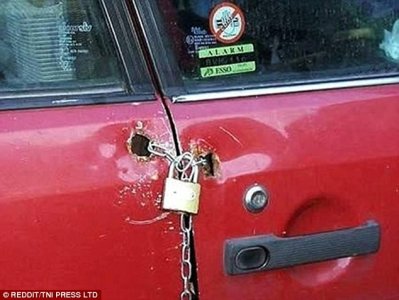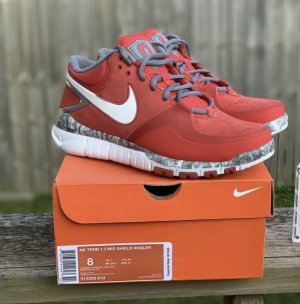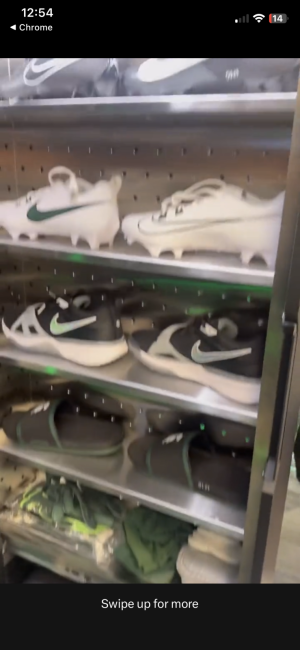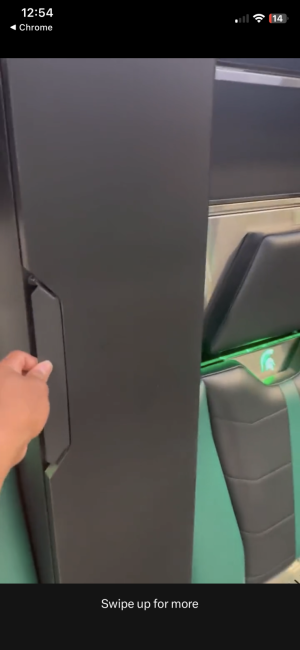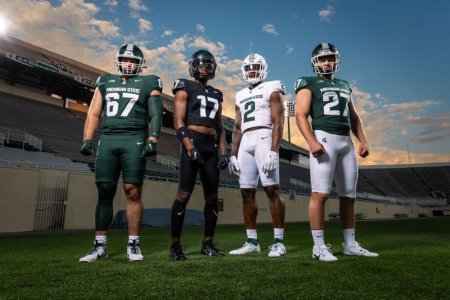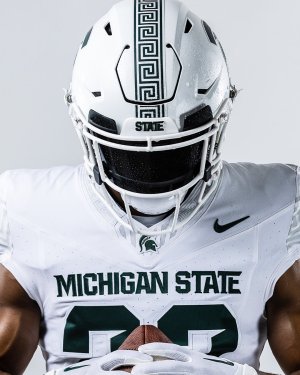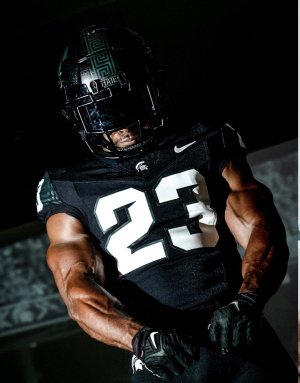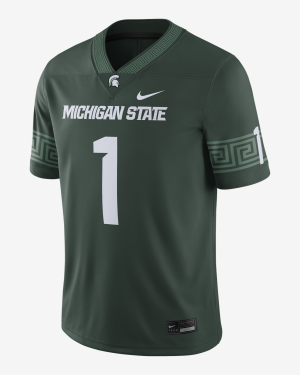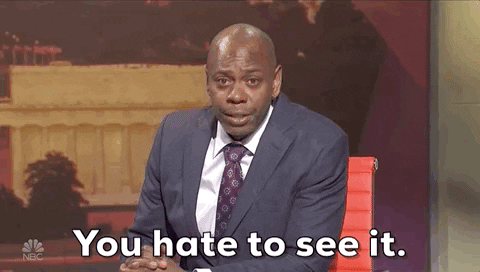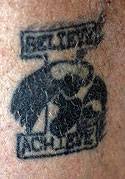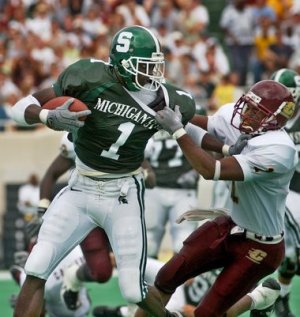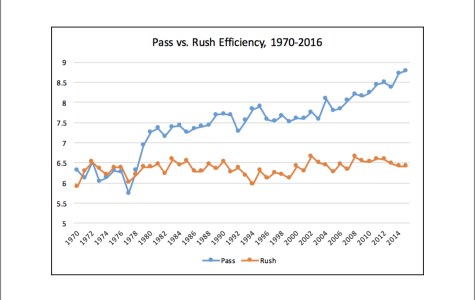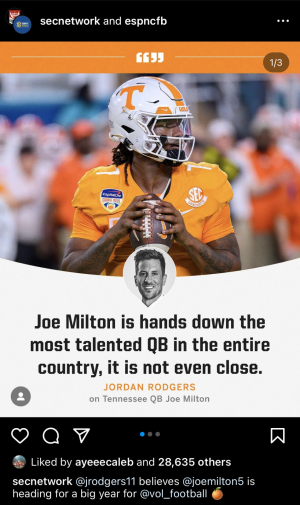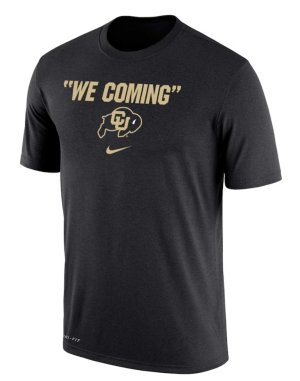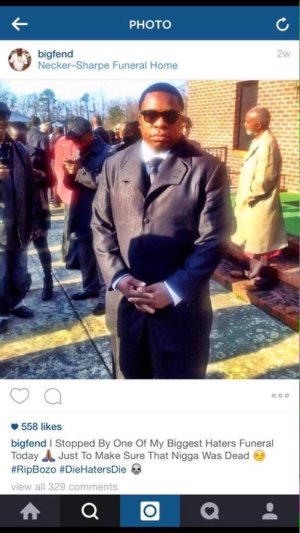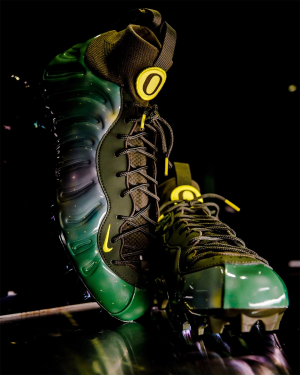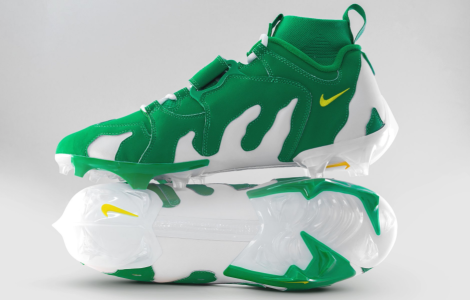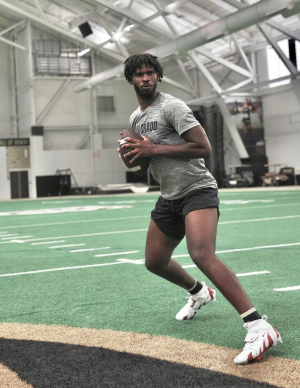- Jan 18, 2006
- 40,640
- 45,644
The Athletic just published their story on Bohn too.
Inside a ‘toxic atmosphere’ at Cincinnati: What USC didn’t know before hiring AD Mike Bohn
May 25, 2023
LOS ANGELES — On Nov. 7, 2019, USC president Carol Folt stood behind a lectern and introduced Mike Bohn as the school’s new athletic director. Bohn, hired away from Cincinnati, was thrust into the glitzy but unenviable task of helming the ghost ship that was USC’s athletic department, brought on to course-correct a run of insular and uninspired Trojan athletic directors, revive a once-proud but rudderless football program, and clean up a string of embarrassing scandals and infractions.
“He demands at all times the highest level of integrity of himself, but of everyone who works for him,” Folt said, introducing her new hire.
Meanwhile, at Bohn’s previous stops at Cincinnati and Colorado, there was a prevailing sense of shock over how he had managed to land the top job at one of the pre-eminent programs in college sports. Bohn — a barrel-chested former college quarterback who had spent more than three decades in sports administration, including four prior stints as an AD — had a reputation as an assertive and occasionally brash leader, a passionate and unfiltered frontman. His experience was self-evident. But at a school like USC, a highly scrutinized fish bowl, Bohn’s unbuttoned demeanor made for a curious choice.
Sentiment ranged from cautious optimism and concern among Bohn’s supporters to dumbfounded bemusement among his detractors, and even some relief within a University of Cincinnati administration that had been discreetly eyeing the ripcord.
At present, the Trojans find themselves in the early stages of a rejuvenation they’ve been so eagerly chasing, including a stretch of successes and acquisitions that has brought a sheen back to Heritage Hall. But roughly three-and-a-half years after Bohn began that journey, he resigned from USC last Friday, effective immediately, a decision made against the backdrop of an internal investigation into USC’s workplace culture and seemingly sparked by an inquiry from the Los Angeles Times into “internal criticism of (Bohn’s) management.”
The LA Times reported widespread issues with Bohn’s management style at USC and Cincinnati, including claims of “inappropriate comments about the physical appearance of female colleagues” at USC and alleged instances of “unwanted physical contact with women” at Cincinnati, which contributed to “a workplace that was hostile, anxious and toxic for women.”
In the days since his resignation, The Athletic has spoken to multiple individuals who worked with Bohn at USC and Cincinnati, as well as athletic directors and others who engaged with him professionally, probing Bohn’s history in college athletics and why it all went wrong at USC. That insight was reinforced by documents obtained from his time at Cincinnati that detail racially insensitive comments made by Bohn and claims of another “toxic atmosphere.”
“I thought just hiring a real administrator was a safe move. And I think that’s what (USC) thought,” said Petros Papadakis, a former team captain and tailback for the Trojans from 1997-2000 who co-hosts a weekday sports talk radio show in Los Angeles.
Instead, Bohn was a bad fit for a worse situation, another flawed hire causing yet another high-profile embarrassment for USC. Said one source, who worked with Bohn for a number of years, and, like others in this story, was granted anonymity to speak candidly about that experience: “I’m surprised it took this long.”
In the hours after Bohn’s resignation on Friday, folks inside the USC football community fired up group texts and collectively rolled their eyes at the latest pratfall by their university. Any initial attempts to spin Bohn’s exit as amicable quickly rang hollow as more details emerged. No interim was announced.
“You’re an elite university, and the biggest money driver at the school, and you just can’t get this right? How can you have this level of incompetence?” said Alex Holmes, a former tight end for the Trojans in the early 2000s and founder of The TOMMY Group, a collective working with USC athletes. “It’s been almost 20 years of one mistake after another after another. It’s so disappointing. Pathetic. The thing is, all of us are numb to it by now. It’s par for the course.”
Since not long after Pete Carroll, Matt Leinart and Reggie Bush led USC to two national championships and played for another from 2003 to 2005, it’s been a dizzying array of self-inflicted wounds off the Figueroa Corridor, low-lighted by one baffling AD hire after another, from erstwhile USC football stars Pat Haden and Lynn Swann to Bohn.
Flanking those hires have been a sequence of head-scratching faceplants. A team manager busted for deflating footballs. Lane Kiffin getting fired on the tarmac at LAX. Steve Sarkisian’s intoxicated, expletive-riddled speech at the school’s annual Salute to Troy pep rally and subsequent player-led punishment. The Bohn era’s splashy, name, image and likeness announcement video produced in the midst of the pandemic, featuring a fake movie premiere, Hollywood pool party and helicopter ride for then-coach Clay Helton. And on and on.
“It’s embarrassing. These things just pile on each other,” Papadakis said. “My God. It’s like non-stop.”
The Cincinnati job had been a lifeline for Bohn back in 2014 after he was forced out as AD of Colorado, his home-state school, the year prior. The Bearcats were transitioning from the old Big East to the fledgling American Athletic Conference, left to wander in the realignment wilderness. Bohn was hired in large part because of his knowledge and experience within that landscape, with a directive to deliver Cincinnati back to a power conference. He shepherded considerable progress in almost six years, including overseeing nearly $180 million in renovations to Nippert Stadium and Fifth Third Arena and hiring Luke Fickell as head football coach. All of it laid the groundwork for an historic College Football Playoff run in 2021 and Cincinnati officially joining the Big 12 this summer.
Bohn was a spirited and willing cheerleader for the Bearcats, amplifying the athletic department at a time when the university really needed it. A few issues, however, were bubbling toward the surface near the end of his tenure. One was the departure of men’s basketball coach Mick Cronin, who left his alma mater for UCLA in April 2019 after negotiations on a contract extension reached an icy impasse. Bohn’s candidate pool during the search to replace Cronin raised apprehensions within the university administration, according to sources familiar with that process. (Cincinnati ultimately hired John Brannen, who was fired two years later after Bohn’s own departure.) Combined with stagnated fundraising for capital projects, it put a strain on the relationship between Bohn and president Neville Pinto, according to university sources.
Then came the USC offer to Bohn, a lifeline hoisted from a yacht deck. USC was only four months removed from naming Folt as president, an appointment made in the wake of a widespread sexual assault scandal under its previous president, C.L. Max Nikias. The Varsity Blues admissions conspiracy had come to light that same year. Helton was a lame-duck coach on whom the fanbase had already turned. The circumstances would challenge even the most qualified of candidates.
Bohn needed a change of scenery. The Trojans needed an established, safe hire from outside the family. It facilitated a mismatched but necessary marriage, USC attempting to patch the cracks in its foundations with a fresh coat of enthusiastic paint.
Swann resigned in September 2019 after his own embattled, three-year term as AD. USC hired Turnkey Search, which said more than 80 candidates were considered for the AD position.
“Mike Bohn was selected because of his integrity, his NCAA student-athlete focus and his people skills,” Turnkey’s Len Perna said then. “President Folt was looking for a people person with strong interpersonal skills for building engagement, followership and galvanizing the USC community.”
Those involved with the search received positive feedback from former-Cincinnati president Santa Ono, who hired Bohn in 2014, and other high-level administrators at the university, a source briefed on the process told The Athletic. Bohn passed a standard background check. But part of the reason an institution uses a search firm is for discretion, which meant there were limitations on how deep the vetting process could go without news of a candidacy leaking.
“You can’t call up every low-level employee in the athletic department,” the person briefed on the search said.
As a result, there was plenty USC didn’t know.
On Oct. 29, 2019, 10 days before Bohn was introduced in Los Angeles, a pair of investigations got underway within the purview of the University of Cincinnati’s Office of Equal Opportunity and Access Office of Gender, Equity & Inclusion.
One was a formalized complaint against Bohn made by Karen Hatcher, an executive senior associate AD in charge of Cincinnati’s athletics foundation. According to a memo about the investigation, obtained by The Athletic via public records request, Hatcher alleged “discriminatory and other professional misconduct” against Bohn.
The investigation described a series of racially insensitive remarks made by Bohn, including Bohn telling Hatcher “I’d be careful with diverse pools” in regard to Hatcher hiring for a development position in the fall of 2018. In another instance, when Hatcher complained about the lack of minorities being promoted, Bohn told Stephen Rosfeld, a White male employee and vice president of development for the university’s foundation, that Hatcher “pulled the race card.” Bohn told Omar Banks, a Black male and former CFO at Cincinnati, that Hatcher was “only successful in athletics because she is an African American woman” and challenged her knowledge of the position, according to the document.
The investigation also described a meeting with senior athletic leadership during which Bohn stated that other universities were only interested in conducting job interviews with Banks because he is Black. Banks also told investigators that due to Bohn’s negative treatment toward him, Banks felt “devalued” and left the University for an opportunity at another institution in early 2017.
Hatcher told investigators that Bohn “made disrespectful comments about President Pinto’s race,” which the investigators corroborated with Rosfeld, according to the document. (Pinto was born in India.) Hatcher told the investigators that Bohn’s “repeated, racially charged, disrespectful comments caused distress” to her as well as others.
The investigation was completed and filed in May 2020, six months after Bohn had left for USC. The memo states: “While the allegations may have constituted evidence of a violation of university policy, there is no opportunity for (Bohn) to answer as he departed before there was an opportunity for OEOA to address the concerns with him.”
Neither Bohn nor Hatcher could be reached for comment.
The second investigation, opened on the same day in 2019, included “an administrative review…to access (sic) the climate and culture of the athletics department as a whole,” according to an administrative review report obtained via the records request. As part of the review, several athletics staffers described that climate and culture “as having a toxic atmosphere,” including the perception that the department was not following university policy “regarding decisions in hiring and internal promotions.” The review also stated that several staffers “expressed there is an ‘in crowd’ and if you are not in the ‘in crowd’ you are not afforded leadership development to acquire new skillsets to be eligible for promotions.” Staffers also described what they believed to be “a lack of diversity in senior leadership positions and no recruitment of minorities for those positions.”
The findings of the administrative review report, filed in April 2020, stated “there is sufficient evidence to support a conclusion that staff members may have engaged in conduct in violation” of the university’s code of conduct. The finding was referred to new Cincinnati AD John Cunningham, who had been hired in December 2019, but no individual employees were named in regard to said conduct.
Though the findings were finalized after Bohn departed for USC, there was at least one notice letter that would have been attainable via the Freedom of Information Act prior to Bohn’s hire. On Aug. 17, 2017, a Title IX Investigator at Cincinnati filed a notice letter detailing a complaint from Kim McGraw, a former associate AD and senior accountant for Bearcats athletics. In March of that year, according to the letter, McGraw spoke with a Title IX investigator regarding “a concern about pay disparity” she discussed with Bohn. The concern was related to pay raises that were doled out on the heels of Banks’ departure as CFO.
McGraw told the investigator she was offered a “temporary 6 percent pay increase” and that “to her knowledge, two male employees were offered 8 percent pay increases.” McGraw stated that when she asked Bohn why she did not receive 8 percent as well that “Bohn told her ‘It’s not an age or gender thing.’” McGraw claimed that Bohn then offered her an 8 percent increase and “at the end of the meeting, Bohn asked McGraw to sign the notes indicating that the issue pertaining to pay disparity had been resolved and that McGraw would not file a complaint about the pay disparity with the University,” according to the letter.
In August 2017, McGraw told Cincinnati’s Title IX office that she did not want to pursue an investigation into the conduct she reported, indicating she would be reporting to a new manager and “felt as though informing Bohn of the allegations could cause tensions in her workplace.” The notice letter stated that the Title IX office honored McGraw’s request and closed the investigation.
McGraw, who retired from the University of Cincinnati in June 2021, reiterated those prior concerns to the LA Times, while also alleging “she saw Bohn make unwanted physical contact with women, including squeezing their shoulders and putting his arm around them,” and that Bohn often “wasn’t present in the department at all.”
Some of the issues that elicited those internal investigations and complaints against Bohn at Cincinnati seemed to follow him to USC. The LA Times reported that Bohn “made inappropriate comments about the physical appearance of female colleagues” at USC and cited multiple USC sources who “described (Bohn) as a poor manager who missed meetings he was expected to attend and was often absent from key events.” The article also stated that USC retained attorney Gina Maisto Smith earlier this year to conduct an internal review. Maisto Smith did not respond to a request for comment.
The Athletic also encountered claims of Bohn’s management missteps at USC, according to sources familiar with his tenure. Of the five national championships USC won in Olympic sports during his stint as AD, Bohn attended none of them, including one that occurred in Los Angeles. Department staffers regularly assumed job responsibilities generally fulfilled by the AD, most visibly in the case of Brandon Sosna, Bohn’s right-hand man who followed him from Cincinnati. Sosna quickly jumped in on everything from the program’s coronavirus response to the marquee hiring of head football coach Lincoln Riley to the realignment machinations for a move to the Big Ten, becoming the go-to point of contact and decision-maker before leaving for a job with the Detroit Lions last June.
Bohn’s 25-year CV was littered with major projects and initiatives he successfully pressed the flesh for as AD; he was known for his ability to rally a group with his energy and passion, whether it was a crowd of fans, a banquet hall of boosters or a boardroom of trustees, his larger-than-life persona cranked to full blast. But the coronavirus pandemic — which struck five months after he came to USC — limited those in-person opportunities. Bohn, who even at Cincinnati was known to spend ample time back home in Boulder, worked from there remotely for the better part of his first two years on the job at USC, and sporadically still over the ensuing 18 months. It only exacerbated his struggles to connect with a new staff or establish a new culture inside USC’s Heritage Hall athletics facility.
“One of the few ADs I’ve ever been around who just doesn’t know the athletes,” said a former USC athletic department staffer who worked under Bohn. “He knows (quarterback) Caleb Williams, but that’s because he won the Heisman.”
The staffer recalled a Zoom session that was set up between Bohn and a team during the pandemic to reassure the athletes and offer support from the administration.
“We had to make sure he even knew the names of the people on the call,” said the staffer. “It was foreign to him that he would know staff members outside of the head coach. There was no personal connection. He was just a figurehead.”
At Cincinnati, Bohn’s faults were easier to paper over or shield from public view. It was a smaller, more familiar staff with more established directives when Bohn was hired, and far less eyeballs nationally or from across campus. The department managed to accentuate Bohn’s strengths and operate in spite of his weaknesses. That wasn’t the case at USC, which was in need of a guiding voice and assertive leadership, an imperative for which Bohn proved unprepared.
Papadakis had a memorable first meeting with Bohn when he was working the USC-Cal game as an analyst for Fox Sports a few weeks after Bohn took the job in 2019. Papadakis was on the field pre-game talking to former teammates Keary Colbert and Lenny Vandermade.
“Bohn came up and he introduced himself,” Papadakis said. “I said, ‘You know Keary and Lenny,’ and he shook their hands and said, ‘I want you alums to be around the program a lot.’”
“They’re on your staff,” Papadakis replied, pointing out that both were currently assistant coaches for the Trojans. “I introduced him to guys that he was on the plane with. They kinda rolled their eyes at me.”
Two national-championship winning head coaches departed USC during Bohn’s tenure. One was Caryl Smith-Gilbert, who led the women’s track team to a national title the year before Bohn’s arrival and the men’s track program to several top-five finishes in the NCAA Championships. The other was women’s soccer coach Keidane McAlpine, who won the 2016 national title.
In 2021, with Smith-Gilbert on the verge of leading women’s track to another national title, the University of Georgia made a courtesy call to Bohn to inform him Georgia wanted to hire her, according to a senior staffer. That source told The Athletic that Bohn “was non-responsive to (Georgia) for a couple of days.” The Trojans won the title on June 12, and the next day Smith-Gilbert announced she was leaving to take the Georgia job.
“(Bohn) allowed for a culture where championship coaches wanted to leave,” said the source.
In November 2021, Bohn pulled off the biggest win of his tenure, courting Riley at the eleventh hour. It was the most inspiring development for USC athletics in a decade, and Bohn justifiably spiked the football.
“It sends a loud and powerful message to the college football world: This sleeping giant is wide awake, standing up and fighting on,” Bohn said at Riley’s introductory news conference, describing the hire as “one of the biggest moves in the history of the game.”
In March 2022, Bohn was named FBS AD of the year by the National Association of Collegiate Directors of Athletics, bolstered by the Riley heist and a trio of national championships. Quarterback Caleb Williams, fresh off winning the Heisman Trophy in December, returns to a Trojans football team with championship aspirations in Year 2 under Riley. USC basketball signed the top men’s and women’s recruits in their respective 2023 classes and recently earned a commitment from 5-star prospect Bronny James, the son of LeBron.
It was beginning to feel like the halcyon days of Trojans lore. Instead, there was rot behind the paint. A program still bruised by the ineptitude of hometown hires like Haden and Swann has a fresh set of problems, and the vaunted University of Southern California is left to reckon with another disaster. Whoever the university hires to be the new AD will inherit a department much better positioned for on-field success than when Bohn took over, but one reeling internally, once again lacking leadership and a clear vision for the future.
And with growing expectations and a seismic move to the Big Ten on the horizon, there is an ever-increasing number of those looking down at USC watching and wondering what happens next.
— The Athletic’s Nicole Auerbach and Bruce Feldman contributed reporting.
(Illustration: Sean Reilly / The Athletic; Photos: Brian Rothmuller, Harry How, Dustin Snipes / Icon Sportswire via Getty Images)
May 25, 2023
LOS ANGELES — On Nov. 7, 2019, USC president Carol Folt stood behind a lectern and introduced Mike Bohn as the school’s new athletic director. Bohn, hired away from Cincinnati, was thrust into the glitzy but unenviable task of helming the ghost ship that was USC’s athletic department, brought on to course-correct a run of insular and uninspired Trojan athletic directors, revive a once-proud but rudderless football program, and clean up a string of embarrassing scandals and infractions.
“He demands at all times the highest level of integrity of himself, but of everyone who works for him,” Folt said, introducing her new hire.
Meanwhile, at Bohn’s previous stops at Cincinnati and Colorado, there was a prevailing sense of shock over how he had managed to land the top job at one of the pre-eminent programs in college sports. Bohn — a barrel-chested former college quarterback who had spent more than three decades in sports administration, including four prior stints as an AD — had a reputation as an assertive and occasionally brash leader, a passionate and unfiltered frontman. His experience was self-evident. But at a school like USC, a highly scrutinized fish bowl, Bohn’s unbuttoned demeanor made for a curious choice.
Sentiment ranged from cautious optimism and concern among Bohn’s supporters to dumbfounded bemusement among his detractors, and even some relief within a University of Cincinnati administration that had been discreetly eyeing the ripcord.
At present, the Trojans find themselves in the early stages of a rejuvenation they’ve been so eagerly chasing, including a stretch of successes and acquisitions that has brought a sheen back to Heritage Hall. But roughly three-and-a-half years after Bohn began that journey, he resigned from USC last Friday, effective immediately, a decision made against the backdrop of an internal investigation into USC’s workplace culture and seemingly sparked by an inquiry from the Los Angeles Times into “internal criticism of (Bohn’s) management.”
The LA Times reported widespread issues with Bohn’s management style at USC and Cincinnati, including claims of “inappropriate comments about the physical appearance of female colleagues” at USC and alleged instances of “unwanted physical contact with women” at Cincinnati, which contributed to “a workplace that was hostile, anxious and toxic for women.”
In the days since his resignation, The Athletic has spoken to multiple individuals who worked with Bohn at USC and Cincinnati, as well as athletic directors and others who engaged with him professionally, probing Bohn’s history in college athletics and why it all went wrong at USC. That insight was reinforced by documents obtained from his time at Cincinnati that detail racially insensitive comments made by Bohn and claims of another “toxic atmosphere.”
“I thought just hiring a real administrator was a safe move. And I think that’s what (USC) thought,” said Petros Papadakis, a former team captain and tailback for the Trojans from 1997-2000 who co-hosts a weekday sports talk radio show in Los Angeles.
Instead, Bohn was a bad fit for a worse situation, another flawed hire causing yet another high-profile embarrassment for USC. Said one source, who worked with Bohn for a number of years, and, like others in this story, was granted anonymity to speak candidly about that experience: “I’m surprised it took this long.”
In the hours after Bohn’s resignation on Friday, folks inside the USC football community fired up group texts and collectively rolled their eyes at the latest pratfall by their university. Any initial attempts to spin Bohn’s exit as amicable quickly rang hollow as more details emerged. No interim was announced.
“You’re an elite university, and the biggest money driver at the school, and you just can’t get this right? How can you have this level of incompetence?” said Alex Holmes, a former tight end for the Trojans in the early 2000s and founder of The TOMMY Group, a collective working with USC athletes. “It’s been almost 20 years of one mistake after another after another. It’s so disappointing. Pathetic. The thing is, all of us are numb to it by now. It’s par for the course.”
Since not long after Pete Carroll, Matt Leinart and Reggie Bush led USC to two national championships and played for another from 2003 to 2005, it’s been a dizzying array of self-inflicted wounds off the Figueroa Corridor, low-lighted by one baffling AD hire after another, from erstwhile USC football stars Pat Haden and Lynn Swann to Bohn.
Flanking those hires have been a sequence of head-scratching faceplants. A team manager busted for deflating footballs. Lane Kiffin getting fired on the tarmac at LAX. Steve Sarkisian’s intoxicated, expletive-riddled speech at the school’s annual Salute to Troy pep rally and subsequent player-led punishment. The Bohn era’s splashy, name, image and likeness announcement video produced in the midst of the pandemic, featuring a fake movie premiere, Hollywood pool party and helicopter ride for then-coach Clay Helton. And on and on.
“It’s embarrassing. These things just pile on each other,” Papadakis said. “My God. It’s like non-stop.”
The Cincinnati job had been a lifeline for Bohn back in 2014 after he was forced out as AD of Colorado, his home-state school, the year prior. The Bearcats were transitioning from the old Big East to the fledgling American Athletic Conference, left to wander in the realignment wilderness. Bohn was hired in large part because of his knowledge and experience within that landscape, with a directive to deliver Cincinnati back to a power conference. He shepherded considerable progress in almost six years, including overseeing nearly $180 million in renovations to Nippert Stadium and Fifth Third Arena and hiring Luke Fickell as head football coach. All of it laid the groundwork for an historic College Football Playoff run in 2021 and Cincinnati officially joining the Big 12 this summer.
Bohn was a spirited and willing cheerleader for the Bearcats, amplifying the athletic department at a time when the university really needed it. A few issues, however, were bubbling toward the surface near the end of his tenure. One was the departure of men’s basketball coach Mick Cronin, who left his alma mater for UCLA in April 2019 after negotiations on a contract extension reached an icy impasse. Bohn’s candidate pool during the search to replace Cronin raised apprehensions within the university administration, according to sources familiar with that process. (Cincinnati ultimately hired John Brannen, who was fired two years later after Bohn’s own departure.) Combined with stagnated fundraising for capital projects, it put a strain on the relationship between Bohn and president Neville Pinto, according to university sources.
Then came the USC offer to Bohn, a lifeline hoisted from a yacht deck. USC was only four months removed from naming Folt as president, an appointment made in the wake of a widespread sexual assault scandal under its previous president, C.L. Max Nikias. The Varsity Blues admissions conspiracy had come to light that same year. Helton was a lame-duck coach on whom the fanbase had already turned. The circumstances would challenge even the most qualified of candidates.
Bohn needed a change of scenery. The Trojans needed an established, safe hire from outside the family. It facilitated a mismatched but necessary marriage, USC attempting to patch the cracks in its foundations with a fresh coat of enthusiastic paint.
Swann resigned in September 2019 after his own embattled, three-year term as AD. USC hired Turnkey Search, which said more than 80 candidates were considered for the AD position.
“Mike Bohn was selected because of his integrity, his NCAA student-athlete focus and his people skills,” Turnkey’s Len Perna said then. “President Folt was looking for a people person with strong interpersonal skills for building engagement, followership and galvanizing the USC community.”
Those involved with the search received positive feedback from former-Cincinnati president Santa Ono, who hired Bohn in 2014, and other high-level administrators at the university, a source briefed on the process told The Athletic. Bohn passed a standard background check. But part of the reason an institution uses a search firm is for discretion, which meant there were limitations on how deep the vetting process could go without news of a candidacy leaking.
“You can’t call up every low-level employee in the athletic department,” the person briefed on the search said.
As a result, there was plenty USC didn’t know.
On Oct. 29, 2019, 10 days before Bohn was introduced in Los Angeles, a pair of investigations got underway within the purview of the University of Cincinnati’s Office of Equal Opportunity and Access Office of Gender, Equity & Inclusion.
One was a formalized complaint against Bohn made by Karen Hatcher, an executive senior associate AD in charge of Cincinnati’s athletics foundation. According to a memo about the investigation, obtained by The Athletic via public records request, Hatcher alleged “discriminatory and other professional misconduct” against Bohn.
The investigation described a series of racially insensitive remarks made by Bohn, including Bohn telling Hatcher “I’d be careful with diverse pools” in regard to Hatcher hiring for a development position in the fall of 2018. In another instance, when Hatcher complained about the lack of minorities being promoted, Bohn told Stephen Rosfeld, a White male employee and vice president of development for the university’s foundation, that Hatcher “pulled the race card.” Bohn told Omar Banks, a Black male and former CFO at Cincinnati, that Hatcher was “only successful in athletics because she is an African American woman” and challenged her knowledge of the position, according to the document.
The investigation also described a meeting with senior athletic leadership during which Bohn stated that other universities were only interested in conducting job interviews with Banks because he is Black. Banks also told investigators that due to Bohn’s negative treatment toward him, Banks felt “devalued” and left the University for an opportunity at another institution in early 2017.
Hatcher told investigators that Bohn “made disrespectful comments about President Pinto’s race,” which the investigators corroborated with Rosfeld, according to the document. (Pinto was born in India.) Hatcher told the investigators that Bohn’s “repeated, racially charged, disrespectful comments caused distress” to her as well as others.
The investigation was completed and filed in May 2020, six months after Bohn had left for USC. The memo states: “While the allegations may have constituted evidence of a violation of university policy, there is no opportunity for (Bohn) to answer as he departed before there was an opportunity for OEOA to address the concerns with him.”
Neither Bohn nor Hatcher could be reached for comment.
The second investigation, opened on the same day in 2019, included “an administrative review…to access (sic) the climate and culture of the athletics department as a whole,” according to an administrative review report obtained via the records request. As part of the review, several athletics staffers described that climate and culture “as having a toxic atmosphere,” including the perception that the department was not following university policy “regarding decisions in hiring and internal promotions.” The review also stated that several staffers “expressed there is an ‘in crowd’ and if you are not in the ‘in crowd’ you are not afforded leadership development to acquire new skillsets to be eligible for promotions.” Staffers also described what they believed to be “a lack of diversity in senior leadership positions and no recruitment of minorities for those positions.”
The findings of the administrative review report, filed in April 2020, stated “there is sufficient evidence to support a conclusion that staff members may have engaged in conduct in violation” of the university’s code of conduct. The finding was referred to new Cincinnati AD John Cunningham, who had been hired in December 2019, but no individual employees were named in regard to said conduct.
Though the findings were finalized after Bohn departed for USC, there was at least one notice letter that would have been attainable via the Freedom of Information Act prior to Bohn’s hire. On Aug. 17, 2017, a Title IX Investigator at Cincinnati filed a notice letter detailing a complaint from Kim McGraw, a former associate AD and senior accountant for Bearcats athletics. In March of that year, according to the letter, McGraw spoke with a Title IX investigator regarding “a concern about pay disparity” she discussed with Bohn. The concern was related to pay raises that were doled out on the heels of Banks’ departure as CFO.
McGraw told the investigator she was offered a “temporary 6 percent pay increase” and that “to her knowledge, two male employees were offered 8 percent pay increases.” McGraw stated that when she asked Bohn why she did not receive 8 percent as well that “Bohn told her ‘It’s not an age or gender thing.’” McGraw claimed that Bohn then offered her an 8 percent increase and “at the end of the meeting, Bohn asked McGraw to sign the notes indicating that the issue pertaining to pay disparity had been resolved and that McGraw would not file a complaint about the pay disparity with the University,” according to the letter.
In August 2017, McGraw told Cincinnati’s Title IX office that she did not want to pursue an investigation into the conduct she reported, indicating she would be reporting to a new manager and “felt as though informing Bohn of the allegations could cause tensions in her workplace.” The notice letter stated that the Title IX office honored McGraw’s request and closed the investigation.
McGraw, who retired from the University of Cincinnati in June 2021, reiterated those prior concerns to the LA Times, while also alleging “she saw Bohn make unwanted physical contact with women, including squeezing their shoulders and putting his arm around them,” and that Bohn often “wasn’t present in the department at all.”
Some of the issues that elicited those internal investigations and complaints against Bohn at Cincinnati seemed to follow him to USC. The LA Times reported that Bohn “made inappropriate comments about the physical appearance of female colleagues” at USC and cited multiple USC sources who “described (Bohn) as a poor manager who missed meetings he was expected to attend and was often absent from key events.” The article also stated that USC retained attorney Gina Maisto Smith earlier this year to conduct an internal review. Maisto Smith did not respond to a request for comment.
The Athletic also encountered claims of Bohn’s management missteps at USC, according to sources familiar with his tenure. Of the five national championships USC won in Olympic sports during his stint as AD, Bohn attended none of them, including one that occurred in Los Angeles. Department staffers regularly assumed job responsibilities generally fulfilled by the AD, most visibly in the case of Brandon Sosna, Bohn’s right-hand man who followed him from Cincinnati. Sosna quickly jumped in on everything from the program’s coronavirus response to the marquee hiring of head football coach Lincoln Riley to the realignment machinations for a move to the Big Ten, becoming the go-to point of contact and decision-maker before leaving for a job with the Detroit Lions last June.
Bohn’s 25-year CV was littered with major projects and initiatives he successfully pressed the flesh for as AD; he was known for his ability to rally a group with his energy and passion, whether it was a crowd of fans, a banquet hall of boosters or a boardroom of trustees, his larger-than-life persona cranked to full blast. But the coronavirus pandemic — which struck five months after he came to USC — limited those in-person opportunities. Bohn, who even at Cincinnati was known to spend ample time back home in Boulder, worked from there remotely for the better part of his first two years on the job at USC, and sporadically still over the ensuing 18 months. It only exacerbated his struggles to connect with a new staff or establish a new culture inside USC’s Heritage Hall athletics facility.
“One of the few ADs I’ve ever been around who just doesn’t know the athletes,” said a former USC athletic department staffer who worked under Bohn. “He knows (quarterback) Caleb Williams, but that’s because he won the Heisman.”
The staffer recalled a Zoom session that was set up between Bohn and a team during the pandemic to reassure the athletes and offer support from the administration.
“We had to make sure he even knew the names of the people on the call,” said the staffer. “It was foreign to him that he would know staff members outside of the head coach. There was no personal connection. He was just a figurehead.”
At Cincinnati, Bohn’s faults were easier to paper over or shield from public view. It was a smaller, more familiar staff with more established directives when Bohn was hired, and far less eyeballs nationally or from across campus. The department managed to accentuate Bohn’s strengths and operate in spite of his weaknesses. That wasn’t the case at USC, which was in need of a guiding voice and assertive leadership, an imperative for which Bohn proved unprepared.
Papadakis had a memorable first meeting with Bohn when he was working the USC-Cal game as an analyst for Fox Sports a few weeks after Bohn took the job in 2019. Papadakis was on the field pre-game talking to former teammates Keary Colbert and Lenny Vandermade.
“Bohn came up and he introduced himself,” Papadakis said. “I said, ‘You know Keary and Lenny,’ and he shook their hands and said, ‘I want you alums to be around the program a lot.’”
“They’re on your staff,” Papadakis replied, pointing out that both were currently assistant coaches for the Trojans. “I introduced him to guys that he was on the plane with. They kinda rolled their eyes at me.”
Two national-championship winning head coaches departed USC during Bohn’s tenure. One was Caryl Smith-Gilbert, who led the women’s track team to a national title the year before Bohn’s arrival and the men’s track program to several top-five finishes in the NCAA Championships. The other was women’s soccer coach Keidane McAlpine, who won the 2016 national title.
In 2021, with Smith-Gilbert on the verge of leading women’s track to another national title, the University of Georgia made a courtesy call to Bohn to inform him Georgia wanted to hire her, according to a senior staffer. That source told The Athletic that Bohn “was non-responsive to (Georgia) for a couple of days.” The Trojans won the title on June 12, and the next day Smith-Gilbert announced she was leaving to take the Georgia job.
“(Bohn) allowed for a culture where championship coaches wanted to leave,” said the source.
In November 2021, Bohn pulled off the biggest win of his tenure, courting Riley at the eleventh hour. It was the most inspiring development for USC athletics in a decade, and Bohn justifiably spiked the football.
“It sends a loud and powerful message to the college football world: This sleeping giant is wide awake, standing up and fighting on,” Bohn said at Riley’s introductory news conference, describing the hire as “one of the biggest moves in the history of the game.”
In March 2022, Bohn was named FBS AD of the year by the National Association of Collegiate Directors of Athletics, bolstered by the Riley heist and a trio of national championships. Quarterback Caleb Williams, fresh off winning the Heisman Trophy in December, returns to a Trojans football team with championship aspirations in Year 2 under Riley. USC basketball signed the top men’s and women’s recruits in their respective 2023 classes and recently earned a commitment from 5-star prospect Bronny James, the son of LeBron.
It was beginning to feel like the halcyon days of Trojans lore. Instead, there was rot behind the paint. A program still bruised by the ineptitude of hometown hires like Haden and Swann has a fresh set of problems, and the vaunted University of Southern California is left to reckon with another disaster. Whoever the university hires to be the new AD will inherit a department much better positioned for on-field success than when Bohn took over, but one reeling internally, once again lacking leadership and a clear vision for the future.
And with growing expectations and a seismic move to the Big Ten on the horizon, there is an ever-increasing number of those looking down at USC watching and wondering what happens next.
— The Athletic’s Nicole Auerbach and Bruce Feldman contributed reporting.
(Illustration: Sean Reilly / The Athletic; Photos: Brian Rothmuller, Harry How, Dustin Snipes / Icon Sportswire via Getty Images)






